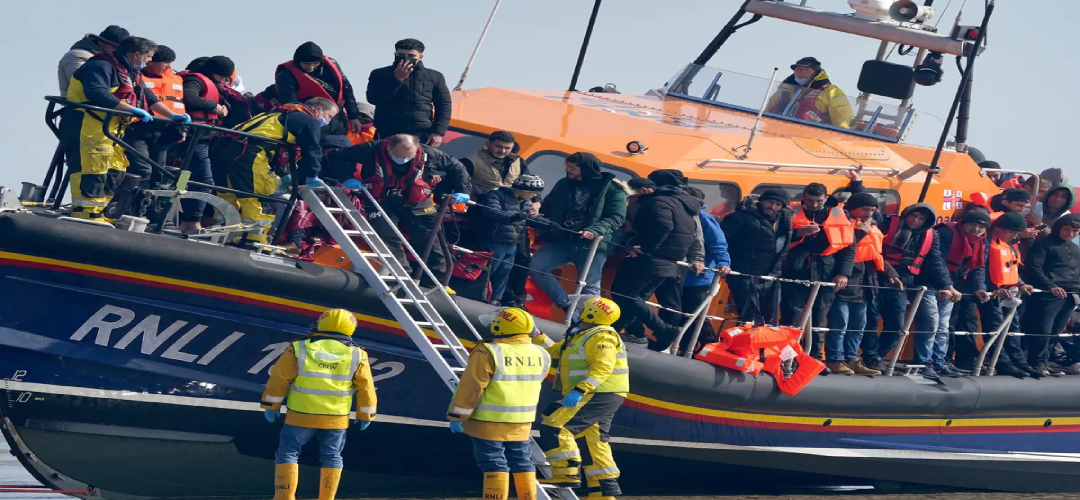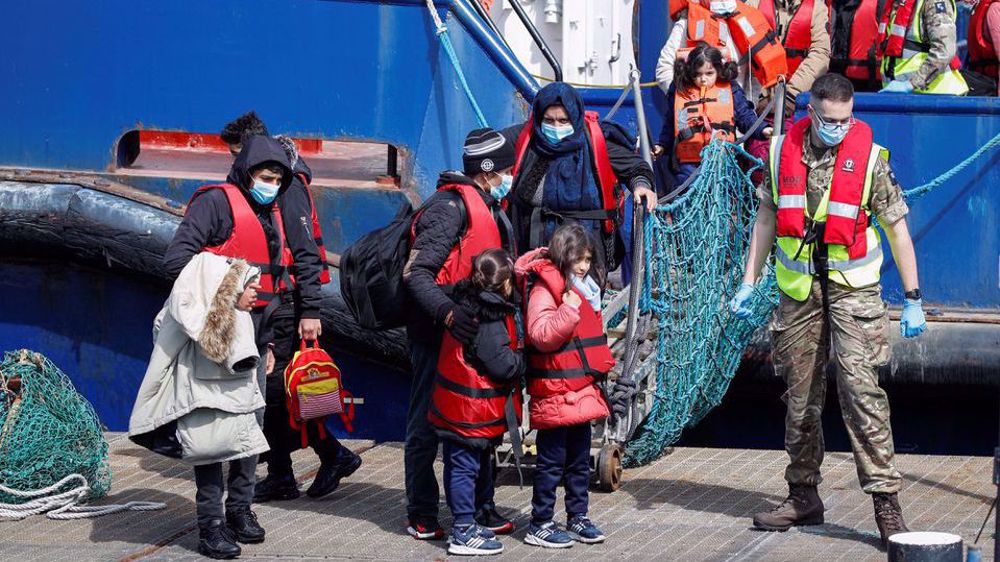Outsourcing Refugee Management!
October 14, 2023 | Expert Insights

On 6th April last year, the UK government announced a new plan to send asylum seekers to Rwanda to have their claims processed.
Recently, this plan has been challenged before the Supreme Court. The Court of Appeal ruled in June 2023 that the plan was unlawful, but the Government had appealed. The Supreme Court began its hearing on October 9, 2023, and a decision is expected to be delivered in a few months.
Background
The official version of the UK Government was that on humanitarian grounds they wanted to make the dangerous channel crossing in fragile crafts, described as a "dangerous and unnecessary," unattractive to potential asylum seekers.
Unsurprisingly, the explanation found little acceptance amongst human rights activists and even the general public. It generated a hot debate within and outside the UK, with human rights groups and opposition politicians calling the move inhumane and illegal. They pointed to Rwanda's poor human rights record and the fact that it was not a signatory to the UN Refugee Convention.
A developing African country itself caught in a vortex of several regional conflicts and insurgencies swirling inside it and along its periphery, Rwanda had very few resources, despite its improving economy. By no stretch of imagination could Rwanda qualify as the idle place to “park” thousands of men, women and children, many of whom had tried to escape the very same continent!
In June 2023, the Court of Appeal ruled that the plan was unlawful. The judges found that Rwanda was not a "safe third country" for asylum seekers and that there was a risk that they could be sent back to their home countries, where they might face persecution.

Analysis
It is a reported fact that the swarm of refugees crossing the dangerous English Channel has significantly soared in recent years, with over 28000 scrambling to the English shores from rickety boats in 2022 itself.
The Government contends that the Rwanda plan will convey to illegal migrants that the United Kingdom is not an easy destination for illegal immigration. More importantly, it will disincentivise human trafficking mafias who make immense profits by illegally conveying individuals, frequently in perilous conditions, to European countries. Being relocated back to the same continent, which many have so desperately tried and paid out of their life savings to escape from, would be a major discouragement. The Government believes that sending asylum seekers to Rwanda will make it less attractive for people to reach the British Isles. Once out of sight of the British media, the future of the transported asylum seekers becomes even more uncertain, with the added danger of incentivising their parent countries to pick them up from their Rwandan camps for a ride back home, whether willingly or under duress.
Legal challenges against the Rwanda plan revolve around its compliance with international law. The Refugee Convention explicitly forbids the return of asylum seekers to places where they may be subjected to persecution. While the UK government maintains that the plan adheres to the Convention, human rights groups dispute this claim. Critics also question the plan's effectiveness in deterring asylum seekers from crossing the English Channel. They contend that individuals fleeing persecution are often willing to undertake substantial risks in their quest for safety, rendering the Rwanda plan unlikely to act as a significant deterrent.
In addition to these arguments, opponents of the Rwanda plan contend that it is unnecessary, given the established safe and legal routes for asylum seekers to enter the UK. They argue that resources would be better allocated to improving these existing channels rather than creating new and contentious ones. Moreover, the plan's cost is a point of contention, with estimates suggesting it could be prohibitively expensive. The Government has projected an initial cost of £120 million to transport the first 100 asylum seekers to Rwanda.
Critics are also concerned about the potential damage to the UK's international reputation; the plan has attracted criticism from human rights organizations and other nations.
The legality of the Rwanda plan is currently under consideration by the Supreme Court, with the outcome expected to significantly influence the plan's future.
Assessment
- The UK's Rwanda plan is part of a global trend where countries attempt to outsource their asylum responsibilities. While politically divisive and ethically contentious, this approach has been adopted by several nations, leading to questions about the rights and well-being of asylum seekers worldwide.
- The Rwanda plan has elicited significant controversy, raising questions about its legality, morality, and effectiveness. As the legal battle advances to the Supreme Court, the decision will have far-reaching consequences, influencing the UK's approach to asylum seekers and contributing to the global discourse on asylum, immigration, and host country responsibilities.
- Balancing the Government's objectives of deterring illegal immigration and saving lives with the principles of human rights and international law is the key challenge. The resolution of this case will be a pivotal moment in the ongoing dialogue regarding the treatment and protection of asylum seekers around the world.








Comments